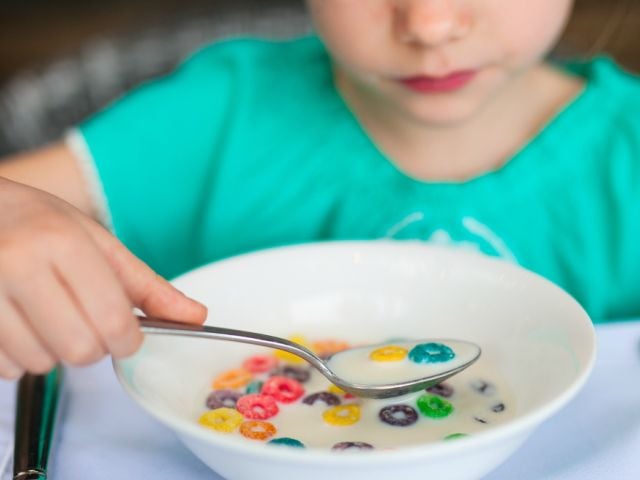
- Parabens are preservatives used in personal care products, food and beverages.
- Some parabens can cause health harms, like reproductive problems.
- To lower your exposure, check ingredient labels to avoid products with certain parabens.
When you shop for personal care products, food or beverages, you might have spotted “parabens” listed on the ingredient label. What are they, and are they safe?
Parabens are a large group of chemicals used as preservatives to to extend the shelf life of products. Some are naturally occurring, meaning they appear in nature, and others aren’t. While they can be found in food, drink and drugs, they’re mostly used in personal care products.
Preservatives are crucial for protecting products from microorganisms, bacteria, fungi and mold. Along with good manufacturing practices, formulation and product design, paraben preservatives work to ensure the safety of products at every step of production, from manufacturing and shipping to stores and, finally, storage at home.
When applied to skin, parabens are rapidly absorbed – nearly 100 percent absorption in skincare products made with parabens. The chemicals are widely found in people, detected in blood, urine, breast milk, breast tissue and even the placenta, so their presence is well-known and widespread.
Parabens’ potential health harms
Not all parabens carry the same health risks. The specific paraben in the product determines whether it is potentially a risk to health.
Some are endocrine disruptors. Exposure can lead to reproductive harm and harm to organs like the spleen and stomach lining.
Parabens with the greatest potential for causing health problems in people were used in cosmetics in the early 2000s. These include methyl, ethyl, propyl, butyl, isobutyl and benzyl parabens.
But their use has plummeted in the past decade. For example, only about 5 percent of personal care products now contain propyl paraben, according to EWG’s Skin Deep database, which assesses the safety of more than 115,000 items. Butyl paraben is still found in some makeup products, but its use has also dropped off.
Regulating parabens
The Food and Drug Administration does not require a safety review of chemicals, including parabens, before they enter the market for use in personal care products. The FDA considers parabens safe for cosmetics.
In contrast, the European Union limits paraben concentrations in cosmetic products to less than 0.4 percent for individual paraben chemicals and 0.8 percent for paraben mixtures. It has also set stricter limits for butyl paraben because of concerns about endocrine disruption. And it banned five other parabens from cosmetics altogether.
In the U.S., California leads the way in removing toxic chemicals like parabens from food and personal care products. A 2020 state law, the Toxic-Free Cosmetics Act, bans isobutyl and isopropyl parabens, along with other toxic chemicals, from cosmetics sold in the state.
In addition to banning these long-chain parabens, the law prohibits mercury, formaldehyde and other chemicals from personal care products sold and used every day in the state. Maryland enacted an identical law in 2021.
In 2023, the California Food Safety Act, authored by Assemblymember Jesse Gabriel (D-Encino), was signed into law. It bans four toxic chemicals, including propyl paraben, from food sold in the Golden State.
Reducing your paraben exposure
Although federal authorities allow parabens in cosmetic products and food, consumer and retailer demand has led some companies to make products without these chemicals.
EWG suggests trying where possible to avoid buying products with iso or butyl parabens and reducing your exposure to items made with propyl paraben. It’s especially important to steer clear of these parabens in products marketed for pregnancy, baby, children and teens.
When you shop, use the EWG Healthy Living app to scan a product and find out whether it contains parabens or other harmful ingredients. The app works for personal care products, food, sunscreens and household cleaners.
Consider products bearing the EWG Verified® mark. They’re made according to our strictest standards for your health, so you can be sure they don’t contain parabens of concern.



